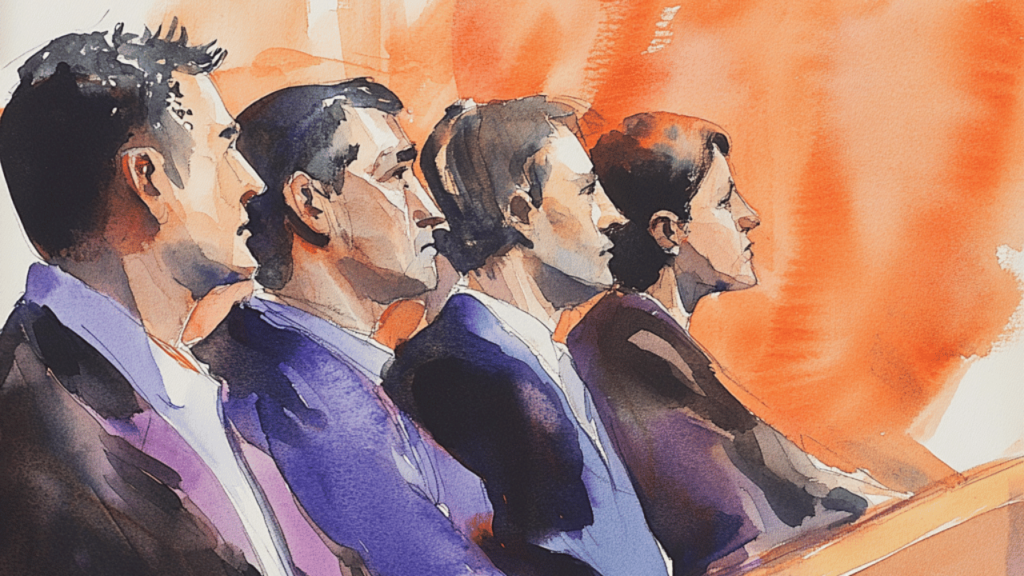What is a civil party constitution?
Becoming a civil party allows you to become a party to a criminal trial in order to obtain compensation (damages) from the perpetrator of the acts.

Example: an association that fights against discrimination can, under certain conditions, become a civil party to support one or several victims and request compensation for damages.
Or, you have received a victim notice from the court informing you of the possibility to become a civil party in a criminal case. As a victim of a criminal offense, becoming a civil party allows you to request compensation for your damages and be a party to the trial.
The damages can be material (destruction of property, for example), physical (injuries) or moral (psychological harm).
Becoming a civil party can be done in two ways:
- Up until the day of the hearing but before the public prosecutor’s submissions
- By filing a complaint with civil party constitution before the hearing.
What is a complaint with civil party constitution?
A complaint with civil party constitution allows you to directly refer the matter to the investigating judge and request the opening of an investigation called a judicial inquiry. It differs from a simple complaint which is referred to the Public Prosecutor.
Filing a complaint with civil party constitution is subject to conditions (Art. 85 of the Code of Criminal Procedure):
- After the dismissal of a simple complaint;
- After a period of three (3) months without response following a simple complaint;
- The reported offense is not a misdemeanor, but a crime or a felony.
As an exception, a prior simple complaint is not mandatory to file a complaint with civil party constitution in the following cases: crimes, press offenses (insult or defamation in particular), violations of the Electoral Code.
Who can file a complaint with civil party constitution?
- Any natural or legal person can become a civil party if they are a direct victim of an offense and have suffered physical, material, or moral damage.
- If the victim is a minor, they cannot become a civil party alone; their legal representatives must do so on their behalf.
- An association whose purpose is to advocate for rights (fighting against racism, for example) can become a civil party before the court and obtain damages under certain conditions. Generally, the association must have been declared for at least five (5) years at the date of the facts for which it is becoming a civil party.
Procedure
1. Filing a complaint
Filing a complaint with civil party constitution is done:
- Either by oral declaration before the investigating judge;
- Or by a letter addressed to the investigating judge of the judicial court of the place of the offense or the residence of the offender. The letter must include certain mandatory elements and documents proving that your simple complaint was unsuccessful or documents proving the damage and an assessment of it.
2. Deposit of a consignment
The senior investigating judge may ask the complainant to pay a sum of money called a consignment to guarantee the payment of a possible fine if the complaint proves to be abusive or dilatory (Art. 177-2 of the Code of Criminal Procedure provides for a civil fine of up to 15,000 euros). In other cases, the consignment is returned at the end of the investigation, whether or not there is a trial.
The judge sets the amount based on the complainant’s income. If the complainant benefits from legal aid, they do not have to pay the consignment.
3. Transmission to the Public Prosecutor
The complaint is then transmitted by the senior investigating judge to the Public Prosecutor for an opinion on the appropriateness of prosecution.
Before making his submissions, the Public Prosecutor may ask the investigating judge:
- To hear the civil party;
- For a 3-month period to continue the investigation.
In his submissions, the Public Prosecutor may ask the investigating judge:
- To open a judicial inquiry.
- Not to take the complaint into account.
4. Decision of the Investigating Judge
The senior investigating judge can decide to follow or not follow the recommendations of the public prosecutor. He can decide:
- To open a judicial investigation, he then appoints the investigating judge in charge of the inquiry. He can appoint himself.
- To refuse to launch an investigation. He then issues an order refusing to investigate.
If the investigating judge refuses to open a judicial investigation, the person targeted by the complaint can sue the complainant for false accusation.
The Powers of the Investigating Judge
The investigating judge has extensive investigative powers to seek evidence and perpetrators of offenses. He investigates both incriminating and exculpatory evidence. He can:
- Request investigative acts:
He can carry out searches, seize items, request expert assessments, including DNA analyses or the implementation of phone tapping; - Formally investigate;
- Issue warrants;
- Order pre-trial detention or judicial supervision.
The Order for Disposition
The judicial investigation ends when the inquiry is completed. The investigating judge then issues an order for disposition. This can be:
A dismissal order issued in the following cases:
- The facts do not constitute an offense;
- The perpetrator is not identified;
- There is insufficient evidence against the person under investigation;
- The person under investigation acted in self-defense. The victim can then seek compensation through a civil procedure.
The public prosecutor can request the reopening of the judicial investigation if new evidence emerges.
An order to refer the case to the competent court to judge the offense:
- If it’s a misdemeanor, the case is referred to the criminal court;
- If it’s a felony, the case is referred to the court of assizes.
The Rights of the Civil Party
Becoming a civil party allows the victim to be informed about the proceedings, to be heard by the court, and to intervene in the debates concerning the case. They can request:
- A copy of the file after their first hearing.
- The investigating judge to perform certain acts (hearing, confrontation, site visit for example).
- The judge to conduct an expert assessment to help establish their damages and estimate the amount of compensation.
What to Do if You Don’t Succeed?
- Appeal against the order refusing to investigate.
The complainant can appeal the decision to refuse to investigate within ten (10) days following notification. - Appeal against the court’s decision.
The civil party can appeal the court’s decision, but only regarding the compensation for their damages. - A victim who was unable to become a civil party before the judgment was pronounced can take action before the judicial court and refer to the Victims Compensation Commission (Civi) or the Service for Assistance in Recovery for Victims of Offenses (Sarvi).
- You can appeal to the Défenseur des droits (Rights Defender).
- You can appeal to Equitas for legal assistance.
APPLICABLE REFERENCES
Articles 49 to 52-1 of the Code of Criminal Procedure (powers of the investigating judge); Articles 79 to 84-1 of the Code of Criminal Procedure (judicial investigation); Articles 85 to 91-1 of the Code of Criminal Procedure (constitution of civil party and its effects); Article 177-2 of the Code of Criminal Procedure (fine in case of abusive procedure); Articles 185 to 187-3 of the Code of Criminal Procedure (appeal if decision to refuse to investigate).




